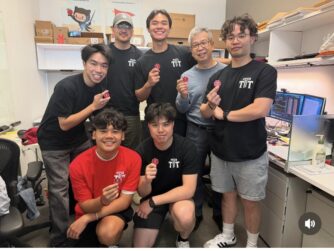Professor Justin Shi initiated a groundbreaking initiative in Spring 2025, integrating AI tools—specifically ChatGPT—into his Operating Systems (OS) course. Operating systems have long been considered one of the most challenging undergraduate courses in computer science. The difficulty stems from its demanding prerequisites: students need extensive experience with C or C++ for low-level system programming and must master complex asynchronous programming concepts. Traditionally, instructors have spent considerable class time bringing students up to speed on the fundamentals of C programming. Professor Shi wanted to explore whether ChatGPT could accelerate students’ mastery of C syntax and concepts, freeing up valuable classroom hours to focus on core operating systems principles. In this episode, Professor Shi and his Teaching Assistant, Matteo Spatola, share their innovative teaching journey, revealing key insights about what’s missing in current CS education and where students should focus their efforts to thrive in our AI-driven era.
Their Approach: Transparency and Understanding
From day one, Professor Shi and Matteo demonstrated a refreshingly transparent approach. They walked students through the entire process—from signing up for AI tools to using ChatGPT to generate code for projects. But here’s the crucial difference: they implemented a rigorous accountability system. Rather than allowing students to copy and paste AI-generated solutions, they required each student to explain their code in person during lab sessions. While this approach proved time-consuming and labor-intensive, the results spoke for themselves. Students responded enthusiastically, with many even requesting independent study opportunities with Professor Shi after the course ended.
Beyond Code Generation: Building Critical Thinking
The real innovation wasn’t just in using ChatGPT for faster coding—it was in developing students’ analytical skills. Professor Shi and Matteo emphasized that ChatGPT’s most significant value lies in accelerating research and exploration. However, they stressed that the most crucial skill students need is the ability to debug code and critically compare different solutions, whether generated by AI, written by previous developers, or coded from scratch.
This focus on critical code examination reflects a broader shift in computer science education. Just as the field has evolved from assembly language to C, and from C to Python, the expectations for CS students continue to grow with each new abstraction layer.
Preparing for the Future
Throughout the episode, Professor Shi and Matteo share practical advice for students interested in taking operating systems courses. They break down the most challenging concepts students will encounter and provide concrete steps for better preparation.
The Bigger Picture
This episode provides a wealth of insights into how AI tools are transforming computer science education for both instructors and students. It’s not just about making coding easier—it’s about fundamentally reimagining how we teach and learn in an AI-augmented world.
Whether you’re a current Temple CS student, considering the major, or planning your post-graduation path in tech, this conversation provides invaluable perspective on navigating education and careers in the age of AI.






